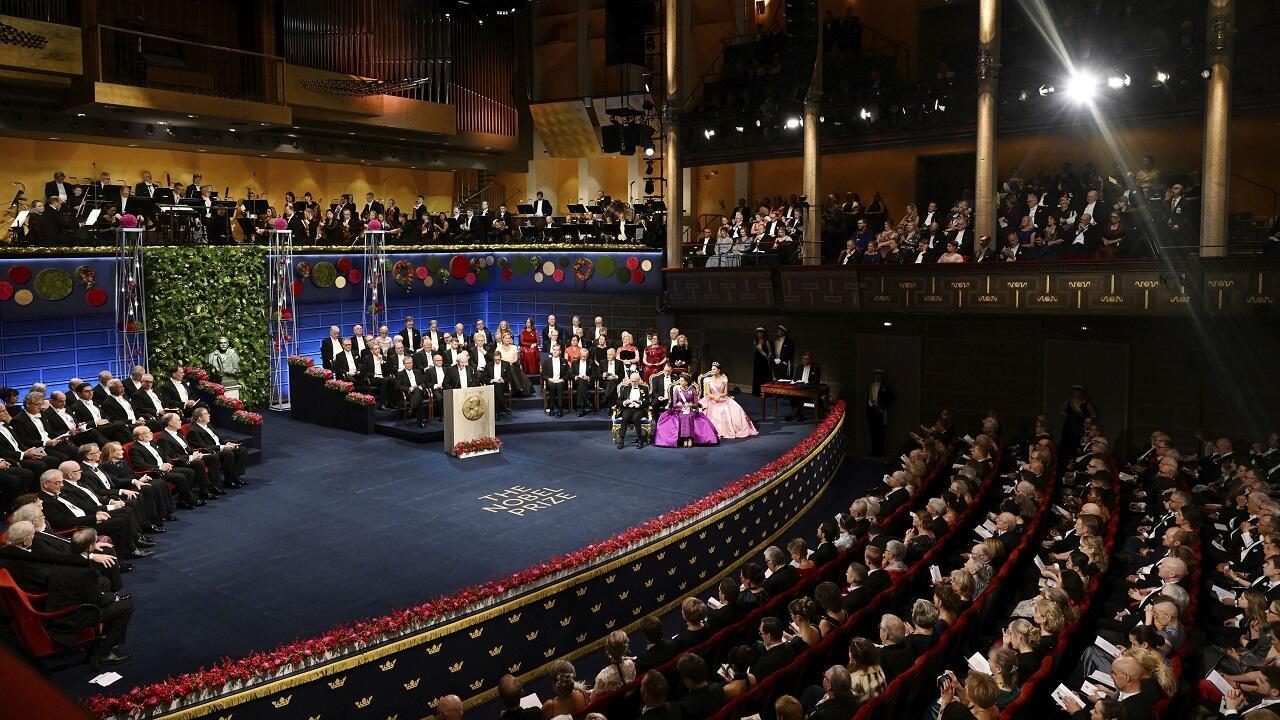2023 Nobel Prize in Chemistry: Moungi Bawendi, Louis Brus and Alexei Ekimov rewarded for their work on quantum dots
The Nobel Prize in Chemistry this year rewards three researchers, the American-Tunisian, Moungi Bawendi, the American Louis Brus and the Russian Alexei Ekimov who works "for the discovery and synthesis of quantum dots".
Overview of the Nobel Prize ceremony in Stockholm. AP - Pontus Lundahl
By: RFI Follow
Advertising
Read more
The three US-based researchers work for the Massachusetts Institute of Technology (MIT), Columbia University and Nanocrystals Technology, respectively. The committee rewarded the work on "the discovery and development of quantum dots, nanoparticles so small that their size determines their properties," according to the jury.
Quantum dots, also called quantum dots, are semiconductor nanocrystals, usually 2 to 10 nanometers in diameter. Capable of converting an incoming light spectrum into a different energy frequency, they are used in modern LED TV screens, solar panels and medical imaging, where they can guide surgeons in the removal of tumors.
Name leak
The names of the three winners, Moungi Bawendi, Louis Brus, and Alexei Ekimov, had leaked early in the morning. The leak of Nobel names is rare, the Academies responsible for choosing the laureates taking care to keep their debates secret. The list of nominees is also secret for 50 years.
BREAKING NEWS
The Royal Swedish Academy of Sciences has decided to award the 2023 #NobelPrize in Chemistry to Moungi G. Bawendi, Louis E. Brus and Alexei I. Ekimov "for the discovery and synthesis of quantum dots." pic.twitter.com/qJCXc72Dj8
— The Nobel Prize (@NobelPrize) October 4, 2023
Last year, the Swedish Academy awarded Denmark's Morten Meldal, American Carolyn Bertozzi and compatriot Barry Sharpless, who won the second Nobel Prize of his career. This trio was rewarded for "the development of 'click chemistry' and bioorthogonal chemistry", used in particular to develop better pharmaceutical treatments, including against cancer.
On Monday, Hungarian researcher Katalin Kariko and her American colleague Drew Weissman were awarded the Nobel Prize in Medicine for their work on messenger RNAs used in vaccination against Covid-19. On Tuesday, Frenchman Pierre Agostini, French-Swedish Anne L'Huillier and Austro-Hungarian Ferenc Krausz received the Nobel Prize in Physics for work on very short laser pulses.
(
With AFP)
NewsletterReceive all the international news directly in your mailbox
I subscribe
Follow all the international news by downloading the RFI application
Share:
Read on on the same topics:
- Nobel Prize
- Research

